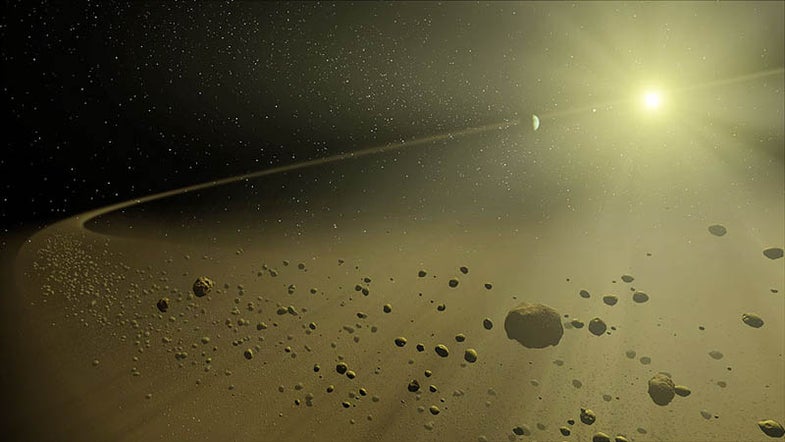For Second Time, Ice Found Aboard Asteroid, Suggesting Water in Orbit Could Be Common
Back in April, two teams of researchers caused a stir when they discovered the first-ever evidence of water ice and...

Back in April, two teams of researchers caused a stir when they discovered the first-ever evidence of water ice and organic molecules riding around the solar system aboard an asteroid. Today, the same group has announced that it has found ice and organics on a second, larger asteroid as well, a finding that suggests water ice and organic molecules may be common passengers aboard asteroids throughout the solar system.
Asteroid 65 Cybele, a resident of the asteroid belt between Mars and Jupiter, has been found to be harboring both water and organic molecules, which are of course the building blocks of life. So while it may seem like an incremental discovery (after all, we found ice and organics on one asteroid so why should we be surprised to find it on a second?), it suggests that 24 Themis – the ice-harboring asteroid discovered in April – likely is not an anomaly. In fact, watery asteroids could be quite common in our solar system.
That’s significant news, because it means there might be a whole lot more water in our solar system than we originally thought. Researchers now have to evaluate the way they’ve been differentiating and classifying asteroids and comets – asteroids are generally viewed as rocky while comets are perceived as icy – and revisit the theory that asteroid impacts are what seeded Earth with the ingredients for life, a theory that appears to be bolstered by this discovery.
Of course, this also raises interesting possibilities for future generations of deep space travel. You need two key things to send a manned mission deep into space: fuel and water. The hydrogen in water can be split to provide fuel and oxygen, and naturally the stuff sustains human and plant life. If water ice is indeed circling the solar system in huge volumes on the other side of Mars, the asteroid belt could become a deep space filling station for future manned mission to the farthest regions of the solar system.